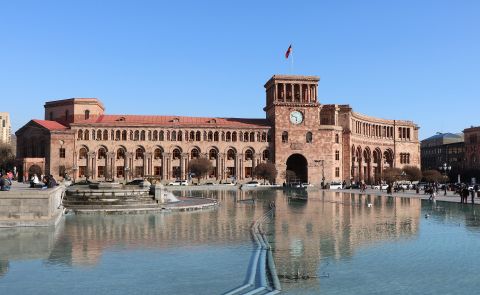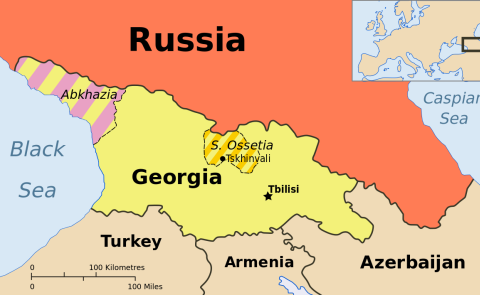
Seventeenth day of the renewed Nagorno-Karabakh war
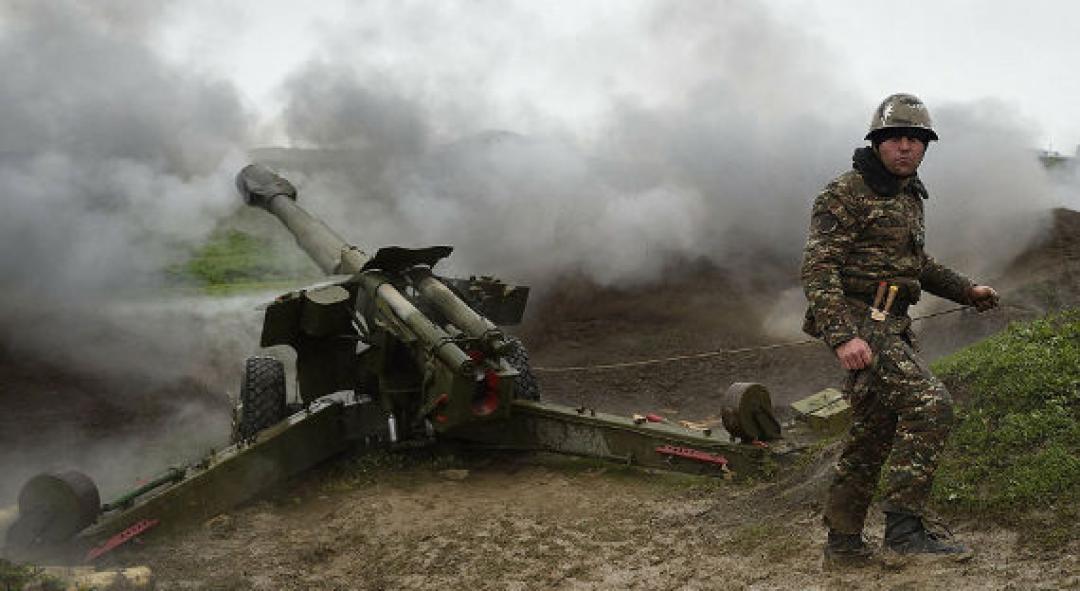
Military developments
On 14 October, the spokesperson of Armenia’s Ministry of Defence (MOD) Shushan Stepanyan reported that missile-artillery shelling continued during the morning in the south, southeast, north and northeast directions. Especially intense firing occurred in the southeast, north, and northeast directions. The de-facto State Emergency Situations Service of Nagorno-Karabakh informed that civilian infrastructure was targeted—with different types of weapons—in the direction of Shahumyan, Martakert, and Hadrut regions.
Stepanyan also informed the press that Azerbaijani armed forces targeted combat ready military equipment in Armenian territory adjacent to the border with Kalbajar region in Nagorno-Karabakh. The Armenian MOD announced its right to target any military installations and combat movements on the territory of Azerbaijan. The Azerbaijani MOD warned Armenia that all of the enemy’s legitimate military targets that have taken the civilian population and human settlements of Azerbaijan under the gunpoint will be destroyed. In addition, the spokesperson of the President of the Russian Federation Dmitry Peskov stated that Russian soldiers were verifying the information about Azerbaijan’s strikes in the direction of Armenia’s territory.
Azerbaijan’s Prosecutor General reported that the territory of the Terter region was subjected to intensive rocket and artillery fire. The assistant to Azerbaijan’s President Hikmet Hajiyev stated that over 100 artillery rockets have hit the city of Tartar and its villages this morning. 1 civilian was killed and 8 were wounded in the process. He also wrote that Terter is the “‘Stalingrad’ of Azerbaijan against Armenia’s Nazism.”
It was also reported that Azerbaijan’s Army took over the Garadaghli, Khatunbulag, Garakollu villages of Fuzuli district, and Bulutan, Melikjanli, Kemertuk, Teke and Tagaser villages of Khojavend district.
Political developments
In his address to the people, Armenia’s Prime Minister Nikol Pashinyan stated that the July escalation in the Tovuz region showed the Azerbaijani army’s inability to resolve the issue by military means: “It was unexpected for everyone, including Turkey. After that, their joint exercises began. Turkey has transferred an unprecedented number of mercenaries from Syria to the region, realizing that Azerbaijan is not able to win.”
Speaking about the negotiation process on the Karabakh conflict, Pashinyan emphasised that Armenia has abandoned the negotiation formula, which ignores Karabakh’s right to self-determination: “In previous years, the negotiation process on Karabakh reached a point where, in fact, the Armenian people were required to give up their own rights. Baku demanded to surrender 5 out of 7 districts, to submit a timetable for the commissioning of the remaining two districts and fix that any status should be within Azerbaijan. The territories were to be surrendered in exchange for peace. Our government, which inherited this negotiating base, refused to discuss the issue in this form, considering it unacceptable,” he added.
In an interview with the Turkish Haber Turk TV channel, Azerbaijan’s President Ilham Aliyev touched on a variety of issues regarding the conflict, including his post-war model of Nagorno-Karabakh. “Our position is based on historical justice, international law and best international experience. In other words, at the first stage the Armenian armed forces must withdraw from the occupied territories. In principle, this issue has already been reaffirmed within the Minsk Group – five districts, then two districts, then Nagorno-Karabakh itself, Shusha, Khankandi – the Azerbaijanis lived in many villages there. Azerbaijani citizens must return there and discussions on the future of Nagorno-Karabakh in a new environment, in a new climate will be continued,” he said.
“We are getting close to peace. Therefore, there is no change in our position on the Armenians living there. Azerbaijan is a multi-ethnic state. Thousands of Armenians live in different parts of Azerbaijan, especially in Baku, and they are our citizens. There are many ethnicities living in our country, and this increases the strength of our country. Therefore, the Armenians living in Nagorno-Karabakh should not be worried at all. Once we save their lives from that criminal junta, they will live better, safer, in a more secure environment and their well-being will improve,” he added. Noting that people Nagorno-Karabakh live in abject poverty, Aliyev assured that his government would invest in it, “we will implement social programs there, and have programs to create jobs there.” Aliyev also spoke over the alleged presence of PKK militants and their presence in Nagorno-Karabakh. According to him, the PKK militants are mostly located in forests and mountainous areas. According to Aliyev, if the war continues, Azerbaijan would destroy the whole Armenian army.
International reactions
In an interview with local journalists Russia’s Foreign Minister Sergey Lavrov spoke about the ongoing hostilities. He said that the negotiations which took place between him, and his Armenian and Azerbaijani counterparts in Moscow on 10 October were “unique” in their character. He noted that he talked with Russia’s President Vladimir Putin about the issue twice, even at night. Lavrov added that Russia’s Defence Minister Sergey Shoigu was also involved in the process, since "it was important to agree on the issue that the declaration of a ceasefire would probably not be very sufficient if there is no mechanism to control the ceasefire.”
“Our main result is an immediate meeting of the sides through military channels and agree on a ceasefire control mechanism, which was mentioned in our document and has not yet been discussed," Lavrov emphasised. He also said that it would be right to deploy Russian military observers on the line of contact in Nagorno-Karabakh, but that it was up to Baku and Yerevan to decide, adding that he is convinced that the political settlement of the Nagorno-Karabakh conflict is possible
Asked to what extent Turkey’s interference in the Nagorno-Karabakh conflict is lawful, Lavrov stated the following: “Russia doesn’t agree with Turkey’s position which, in essence, President of Azerbaijan Ilham Aliyev has expressed a few times. There is no secret here. Russia can’t share the sentiment that there is a military solution to the conflict and that it is acceptable. Unfortunately, Turkey managed to do this and spoke out by saying that it will support any action that Azerbaijan takes for the settlement of the conflict, including military action. Russia is in touch with Turkish soldiers, and I have held a few talks with Turkish Foreign Minister Mevlut Cavusoglu. Russia defends its view that a peaceful settlement is not only possible, but also the only way to ensure a sustainable solution to the issue.”
The former US Vice President and presidential candidate of the Democratic Party in the upcoming US elections Joe Biden criticised the administration of US President Donald Trump for being largely passive, and disengaged, throughout this recent period of escalation. “Rather than delegating the diplomacy to Moscow, the administration must get more involved, at the highest levels, by working with our European partners to de-escalate the fighting and return the two sides to negotiations," Biden stressed.
Biden also said that the Trump Administration must tell Azerbaijan that it will not tolerate its efforts to impose a military solution to this conflict. "It must make clear to Armenia that regions surrounding Nagorno-Karabakh cannot be occupied indefinitely and that credible negotiations on a lasting resolution of the conflict must commence immediately once a ceasefire is concluded.” He added that Turkey and Iran must stay out of this conflict, accusing Turkey of providing arms to Azerbaijan and bellicose rhetoric.
See Also

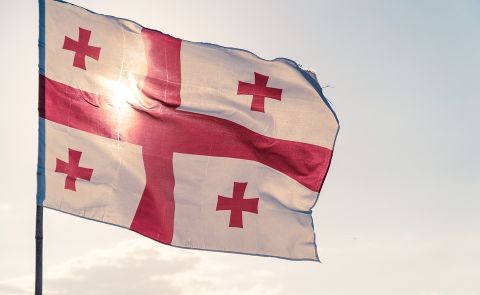
Georgian Bishop Accuses Government Official of Plotting Assassination; Opposition Leader Alleges Husband’s Abduction
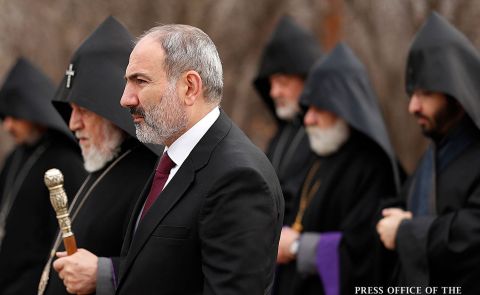
Armenian Government and Church Face Growing Tensions Over Leadership Allegations
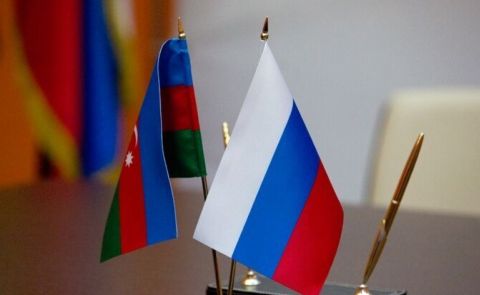
Tensions Rise Between Russia and Azerbaijan Over Medinsky’s Ukraine Conflict and Karabakh Remarks
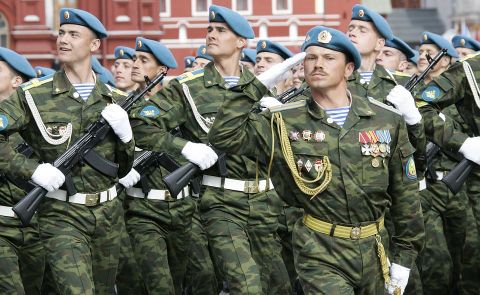
Chechen Official Outlines Conscription Rules for Russia-Ukraine War
